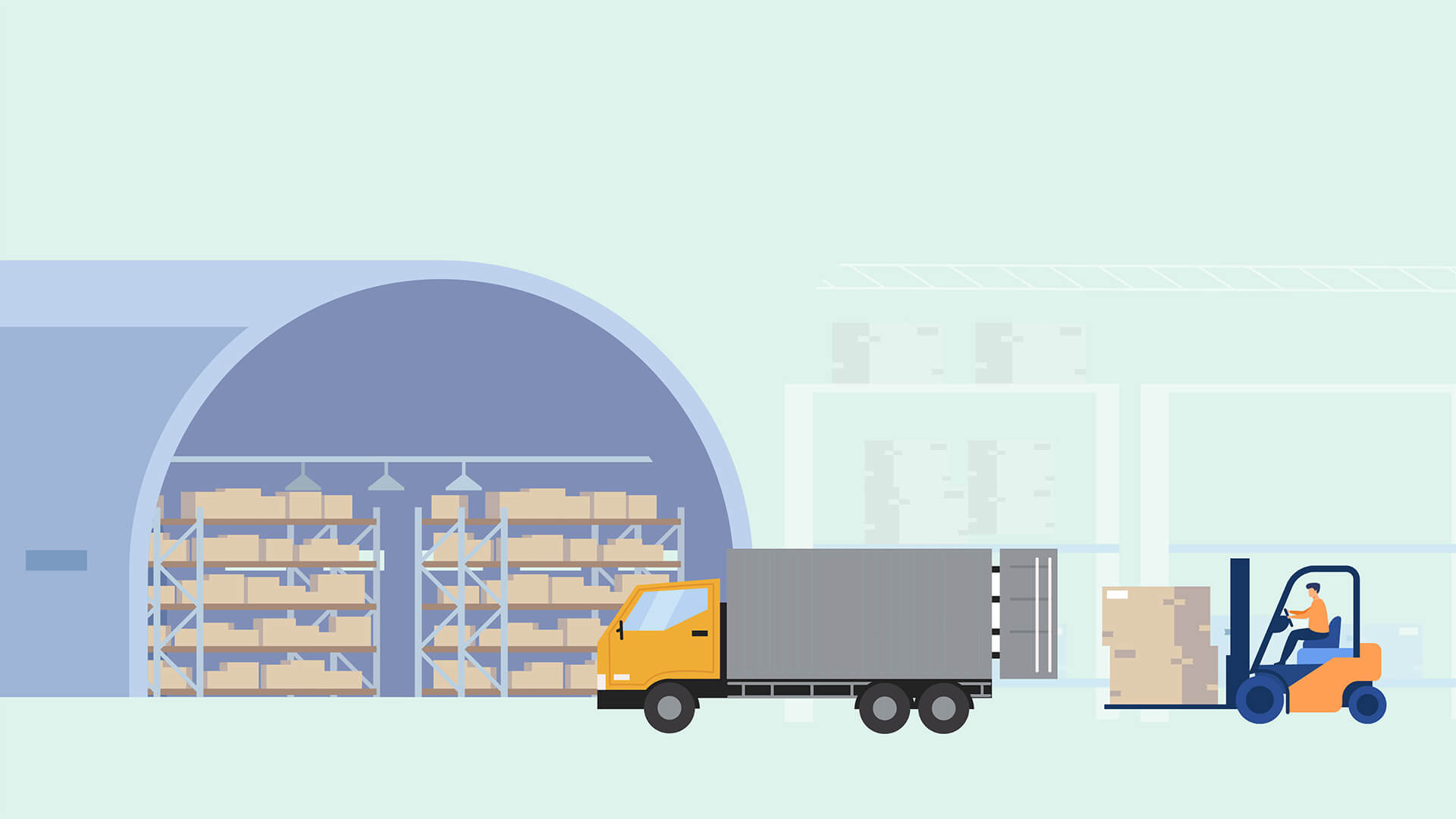The wholesale distribution business is an important link within the global supply chain, making up 7% of the US private industry’s GDP and generating sales of over $3.2 trillion per annum. Wholesale distributors purchase various products from manufacturers and other suppliers in bulk, and then sell them to business-to-business enterprises, including commercial establishments, businesses, or retail stores.
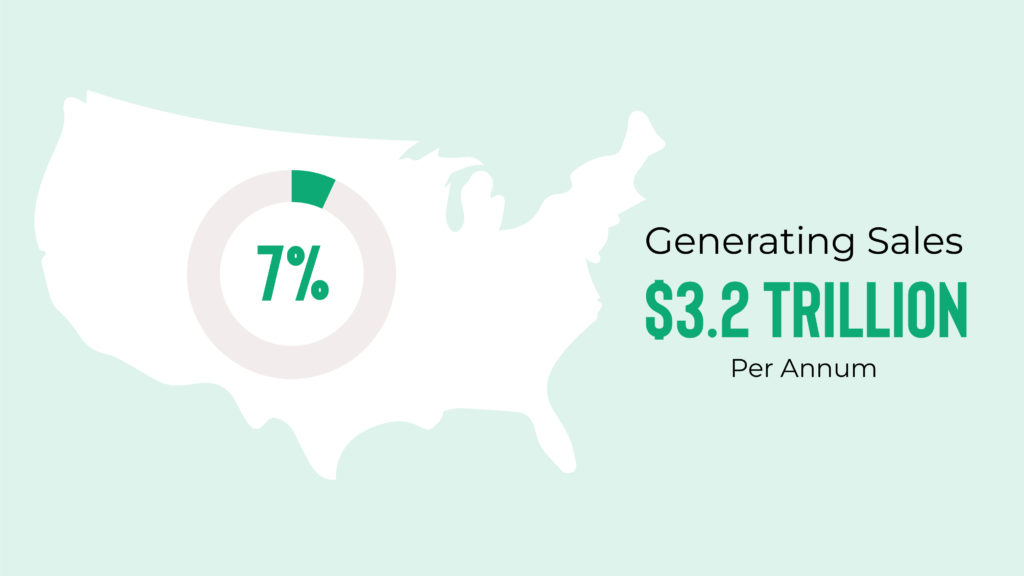
While the concept sounds simple, the wholesale distribution business is surprisingly complex and requires various skills, tools, and resources to succeed. Owners of wholesale distribution businesses need sales skills, customer relationship management tools, financial savvy, and the ability to handle the back-end activities, including setting up the warehouse, shipping, receiving, and more. Generally speaking, there are two types of distribution companies: retail and wholesale.
Retail distribution businesses sell directly to customers; wholesale distribution businesses resell their products to other businesses.
The First Steps to Creating a Successful Wholesale Distribution Business
If you want to start a wholesale distribution company, you can either purchase an existing business, start from scratch, or buy a stake in a business opportunity. Starting a wholesale distribution business from scratch can be costly, as you’ll need to purchase the necessary warehouse space, form relationships with retail distributors or other channels, choose the right products, and learn the ins and outs of the industry while you do it.
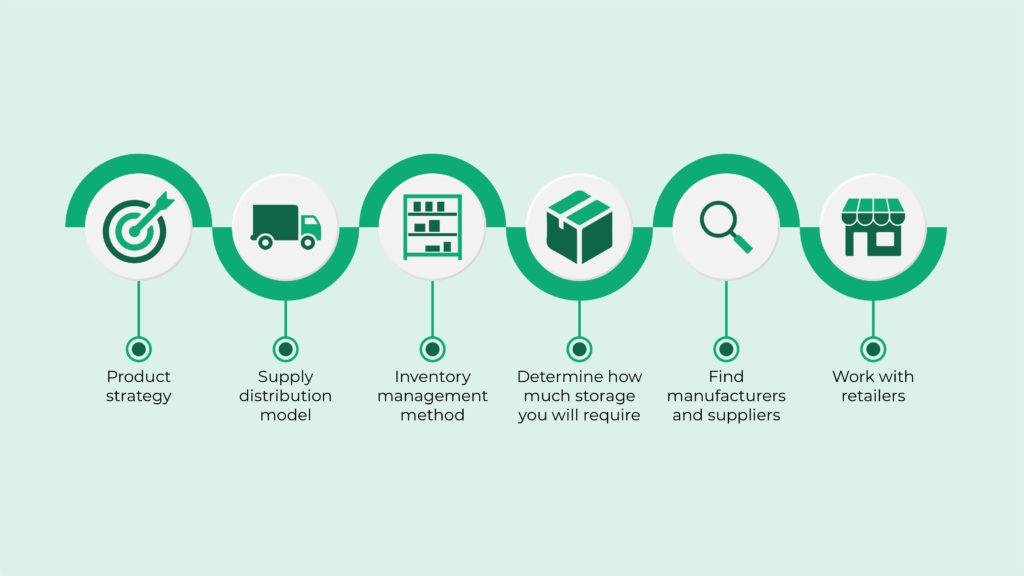
However, it can be done! Here are a few steps to starting your wholesale distributorship:
Choose the Right Niche/Product Strategy
Choosing a niche refers to capturing a small, specific market segment by specializing in one type of product. This narrows the number of competitors you’ll face but also limits your market size as only a very specific consumer is interested in, or needs, your product. Alternatively, you might not specialize in anything and instead compete in terms of variety, price, or specialty. For example, Amazon competes on a variety by wanting to “stock one of everything”, while Faire specializes in only cycling accessories.
Choose Your Supply Distribution Model
Next, choose how you’ll reach your clients. You could use a brokerage to arrange sales, export goods to retailers in other countries, follow the cash and carry model, or sell your products online. Online and cash and carry models require fewer employees and simpler transaction processing, which reduces overhead.
Determine Your Inventory Management Method
How you handle inventory management will determine the number of employees you’ll need, the amount of warehouse space you will require, and the software and systems you’ll use to track inventory and delivery methods. You can either warehouse your products (buying and keeping them for a time before selling them to retailers) or drop-ship (where products are bought from a supplier and shipped directly to clients). Warehousing helps you make the most of fluctuating prices, but drop shipping can offer greater flexibility and lower upfront costs when starting a distributor business.
Determine How Much Storage You Will Require
Most distribution businesses need some storage space. You can rent, lease, or even buy your own facility. If you own a small distribution business, you might even be able to get away with using your garage or basement as storage. Just make sure that zoning and commercial laws in your area allow this!
Find Manufacturers and Suppliers
Manufacturers produce products you can acquire in bulk, either completed or semi-completed. You can negotiate contracts with their representatives, discuss delivery and transportation, and even establish exclusivity to gain a competitive edge in the market.
Work With Retailers
Retailers sell products they acquire from wholesalers at a mark-up. Provide local retailers or retail outlets with catalogs and encourage them to place orders. You may need to use sales teams to build strong business relationships and communicate about your inventory to keep retailers satisfied and coming back for more.
The Four Key Tech Components of a Successful Wholesale Distribution Business
As a wholesale distributor, you can manage the entire process yourself using various manual tools, but most companies rely on an ERP system to succeed. A good wholesale distribution business ERP system comprises several features, including:
- Distribution process management
- Supply chain management
- Retail or e-commerce distribution channels
- Back-office management
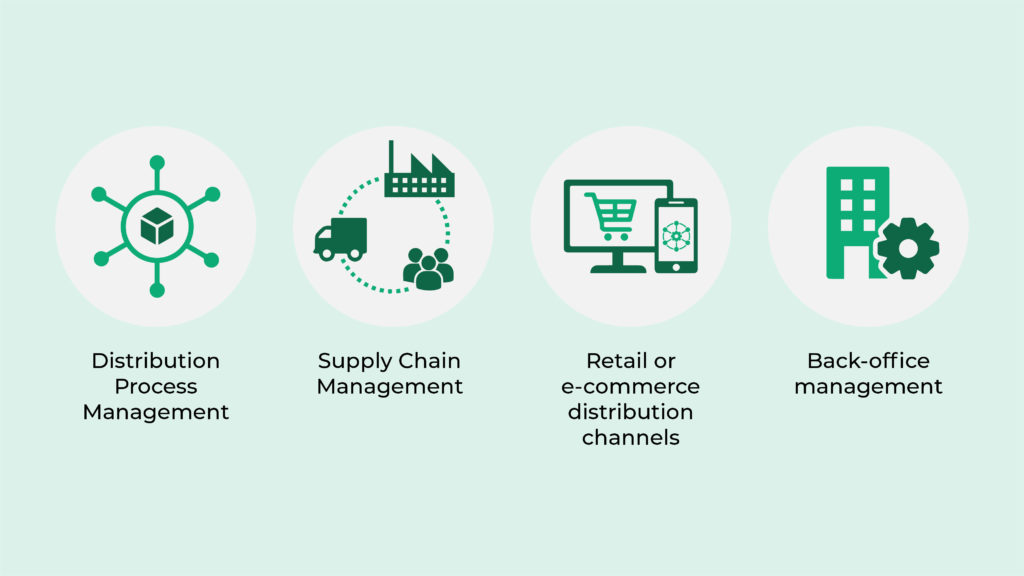
Distribution Process Management
Distribution management is the process that a wholesale business uses to oversee the movement of goods from the supplier to the end consumer. This includes:
- Distribution planning, which is the process of determining the right quality of finished goods to be housed in your warehouse, or warehouses, according to forecasted demand;
- Sales management, which automates the entry of customer orders and tracks their status, as well as inventory management and returned goods processing;
- Procurement management, which oversees the purchasing of raw materials, finished, or semi-finished goods;
- Quality management and control, the set of actions taken to ensure that products remain of a safe and high quality as per national/international rules and regulations;
- Customer Relationship Management (CRM), including campaign and marketing management, sales force automation, customer service, and customer support.
Supply Chain Management
Supply chain management helps your wholesale distribution business manage all its business relationships and operations. This may include a complete warehouse management system that supports the everyday operations of your warehouse, including tracking inventory and stock levels, optimizing picking and replenishment, and other functions. The benefit of using an ERP system for this work is that it can reflect real-time data in a paperless and robust interface so that staff can manage and report on distribution operations at any time.
Depending on the nature of your distribution business and sales process, you may also need a transportation management system to track transportation movement, or global trade management tools to communicate across borders and track product data and compliance internationally. You should also invest in supplier relationship management tools to collaborate with your supply chain.
Retail or E-commerce Distribution Channels
Selling online or through your own retail store(s) is a great way to bring your product offerings to the final consumer. If you do sell through the web or a store, you may need retail and point-of-sale (POS) software to record, track, store, and analyze data and transactions. Modern ERP systems should be able to seamlessly integrate with any e-commerce platform your business uses.
Back-office Management
The back-end system you need to run your business will vary depending on the structure of your company and the complexity of your supply chain. Most wholesaler-distributors require, at a minimum, financial applications, chargeback processing, and human resource management.
Financial applications are used to manage the company’s cash flow and other financial resources, including budgeting, reporting, accounts receivables, and risk management. Chargeback and rebate processing is used to manage complex contracts, including payments by distributors to manufacturers (and vice versa). Finally, human resources are essential for managing staff in your distribution business. This can include payroll management, timesheets, time-off, employee relations, and health and safety.
Conclusion
Every wholesale distribution business must first assess its product lines, target market, inventory needs, and technical requirements before launching a successful venture. Within that assessment, selecting an appropriate ERP system that can grow and adapt quickly to your needs is critical to the scalability and long-term profitability of your business.
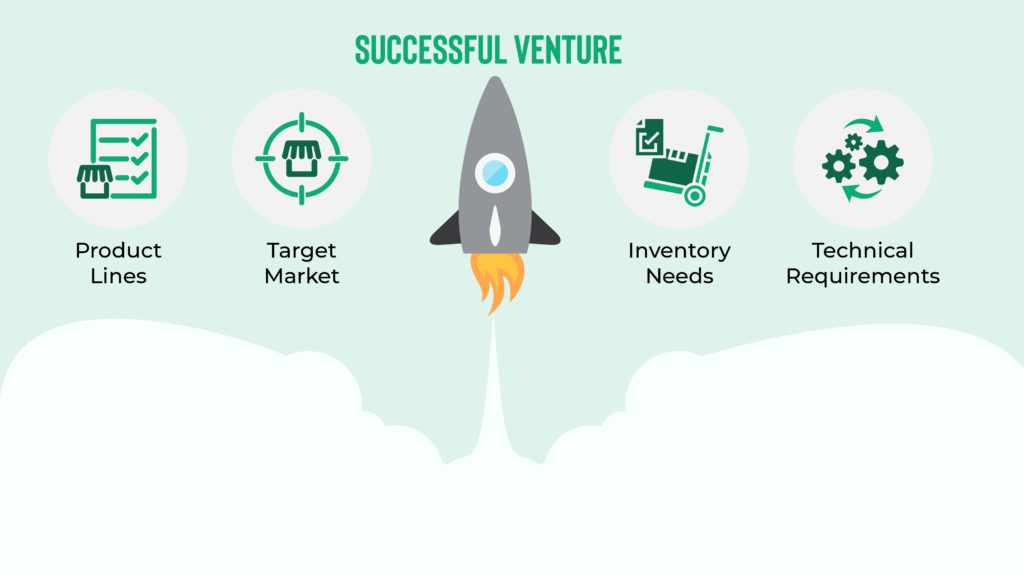
Get in touch with 10X ERP if you want to learn how integrating a robust, scalable, yet flexible ERP can help set your business up for rapid, exponential growth from day one.
